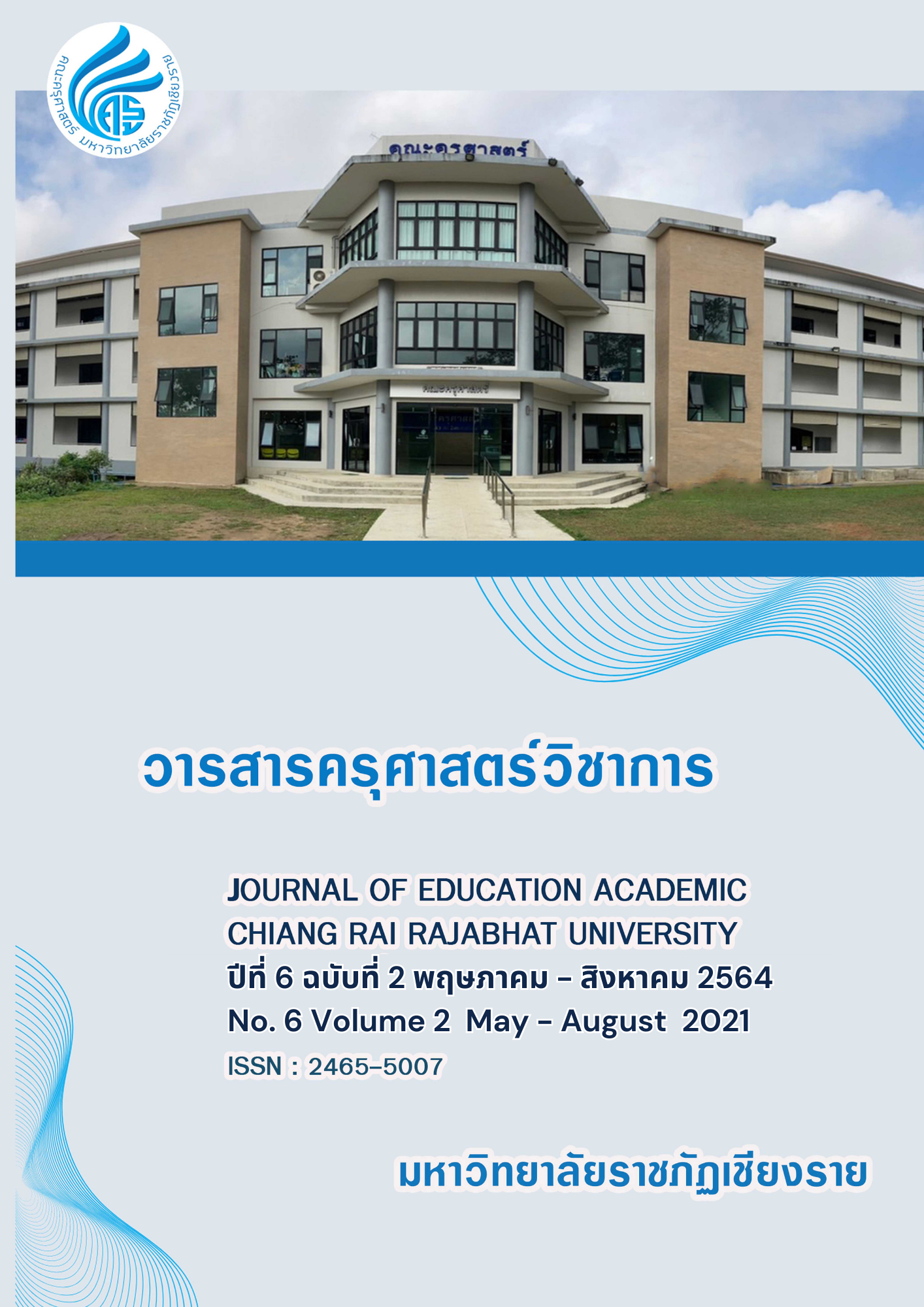The Guidelines for Competency Development of Basic Education Teachers under Ban Du Sub-district Municipality, Mueangchiangrai, Chiang Rai Province
Keywords:
Competency Development, Basic Education TeachersAbstract
The aims of this study were (1) to perform competency evaluation of basic education teachers under Ban Du Sub-district Municipality; (2) to investigate factors affecting competency development of basic education teachers; and (3) to propose the competency development of basic educaiton teachers. The samples in Stage 1were 100 participants including municipality administrators, director of education division, staff of education division, teachers and educational personnel, school committees, and parents representatives. The specialist informants in Stage 2 were 10participants including municipality administrators, director of education division, teachers/ educational personnel and school committees. The specialist informants in Stage 3 were 10 participants including municipality administrators, director of education division, staff of education division, teachers/educational personnel, school committees, and educational supervisors. The research instruments were questionnaire evaluating competency, interview and focus-group discussion forms. The data was analyzed for frequency, percentage, mean, standard deviation, while content analysis was used to develop summary reports in narrative format. The results showed that:
- The competency evaluation of basic education teachers under Ban Du Sub-district Municipality revealed that the teachers’ competency, in overall, was rated at the moderate level in all aspects.
- The factors affecting the competency development of basic education teachers under Ban Du Sub-district Municipality following 2S4M framework indicated that Structure and policy showed high effect towards competency development of basic education teachers. Policy promoting good education development and its efficiency also affected the education provision and the development of quality teacher. Management involved management processes, staff participation, management authority decentralization, and job performance monitoring. Money involved adequacy and flexibility of disbursement. Man involved sufficient staff for jobs and quality of staff. Materials involved adequacy and up-to-date, worth and maximized benefits. Service and products involved efficiency and quality of education provision as well as students’ quality.
3. The guidelines for competency development of basic education teachers under
Ban Du Sub-district Municipality resulted from focus-group discussion. (1)Competency Development Process involved Individual Development Plan (ID - Plan), competency development, monitoring and evaluation of competency development; (2) Competency Development Model involved action learning, coaching and mentoring, meeting/training/seminar/workshop, monitoring and evaluation, field education, and PLC.
References
รัตนา ทรงทอง. (2550). วิเคราะห์สภาพแวดล้อมของสถานศึกษา. สืบค้นเมื่อ 14 ตุลาคม 2563, จาก http://www.gotoknow.org/posts/153845
วีระวัฒน์ ปันนิตามัย. (2543). การพัฒนาองค์กรแห่งการเรียนรู้. กรุงเทพมหานคร: ธีระป้อมวรรณกรรม.
Inglis S. (1994). Making the most of action learning. Hampshire: Gower Publishing Limited.
Marquardt M.J. (1999). Action learning in action: Transforming problems and people for world-class organization learning. Palo Alto: Davies-Black.
Downloads
Published
Issue
Section
License
Copyright (c) 2022 Journal of Education Academic Chiang Rai Rajabhat University

This work is licensed under a Creative Commons Attribution-NonCommercial-NoDerivatives 4.0 International License.






